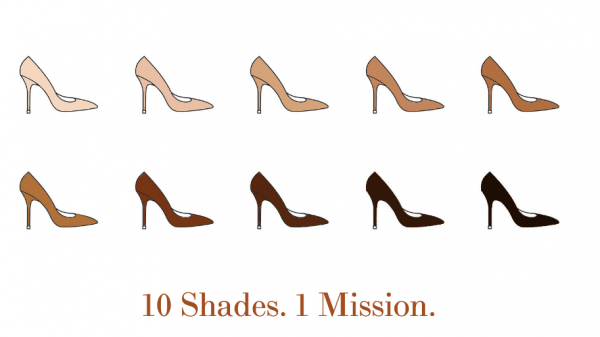What women and men are paid at work is still worlds apart, with some men earning as much as 25% more than their female colleagues. So just what can be done about the continuing gender pay gap asks Afua Adom.
Afriend of mine has just quit her high-flying job as a lawyer. “Why would she do that?” you might ask. Well, firstly she found out that a male colleague on her team, who had been at the law firm for three years less than she had, had been earning more than her for the entire time he was there, as well as being promoted over her. Needless to say she was livid and after a long drawn-out employment tribunal has decided to leave the firm and the law profession altogether, feeling totally disillusioned by the whole episode. But this is not the whole story. In the ten years that my friend worked for the law firm she took nine months out to have a baby. In that time she didn’t get her bonus, which was based on how many hours she billed – had she billed one hour more she would have got it. When she returned from maternity leave there were the jibes from other colleagues that she was ‘leaving early’ now she had a baby – early being at 10pm, five days a week. Despite her loyal service to her company for over a decade she missed out on a promotion that should have been in the bag – the additional slap in the face was the disparity in wages that she found out about later.
This is just another depressing episode in the constant battle that women have to be paid the same as their male counterparts. Despite the fact that equal pay legislation has been around in the UK for 40 years, a recent study by The Chartered Management Institute based on 43,000 workers shows that basic salaries are almost 25% bigger for men than women – almost £40k compared to almost £30k. Male employees are also more likely to get a bonus than women and, surprise surprise, when they do it’s usually twice as much – £6,442 bonus for men compared to £3,029 for women doing the same jobs. Although there doesn’t seem to be any disparity between races this is still a shocking indictment of the employment market and the state of women’s pay in the UK.
Male employees are also more likely to get a bonus than women and, surprise surprise, when they do it’s usually twice as much
So what are the reasons behind the differences in pay between men and women? I decided to do some research, talk to a few people in the world of work and see what they thought. Needless to say I was surprised at some of their responses. Esther Smith, Partner at leading law firm Thomas Eggar, comments, “It is true that more women than men take significant time out of work to raise children, whether as maternity leave or by electing to work part time. On the basis of this fact, it is not surprising perhaps that the average bonus paid to working women is lower. By taking time away from work and working reduced hours, when compared to male colleagues, it is not surprising that women as a generic group, are in less senior, lower paid roles. Women, and indeed men who elect to take career breaks or opt to work part time, cannot expect to make these decisions without realistically expecting it to have an impact on their career, which in turn will impact on their earnings.” So, wait a minute… Just because I’ve had a baby I should expect to earn less for the rest of my life? It’s a major problem that women who return to work after having children often carry the burden of childcare or work reduced hours. Employers also think that if they’ve had one baby they are likely to have another, and therefore feel that they shouldn’t really invest time and money in a person that could ditch the company again in another year. To quote many playgrounds across the country this simply isn’t fair. Couple this with the nine months or a year off women have had they often have a gap in their skill set having been out of the workforce for a long time. This affects their confidence and how much they really feel they are worth at work meaning they are more willing to take any pay rather than the pay they really should get.
Just because I’ve had a baby I should expect to earn less for the rest of my life?
So what can be done to close the pay gap between men and women? It’s been suggested that businesses across the country should carry out pay audits to address the problem and that they should also publish the pay gap between their male and female employees by rank alongside the number of women in their companies being promoted. That’s all very well and good but what would happen after all this information is made public? Should employers be forced to pay their women the same as men? That would be amazing but some companies, especially small or medium-sized firms could be forced out of business. Or should male pay be reduced to match those of the female employees at the company? Let’s just be honest – that really wouldn’t be fair on men would it. But neither is the fact that women are paid less than men in the first place. It’s as simple as this – employers need to realise that working mums are worth the same as any other employee and that taking maternity leave does not mean that you somehow lose employment value. It should stop being seen as a negative thing by employers and actually be viewed as a positive. It’s time women were valued in the workplace as much as men and ultimately paid the same as them. The fairer sex shouldn’t be punished for doing the hard work of child-bearing and rearing, whilst going out to work, they should in fact be rewarded – or at least have the right to equal pay.


































































